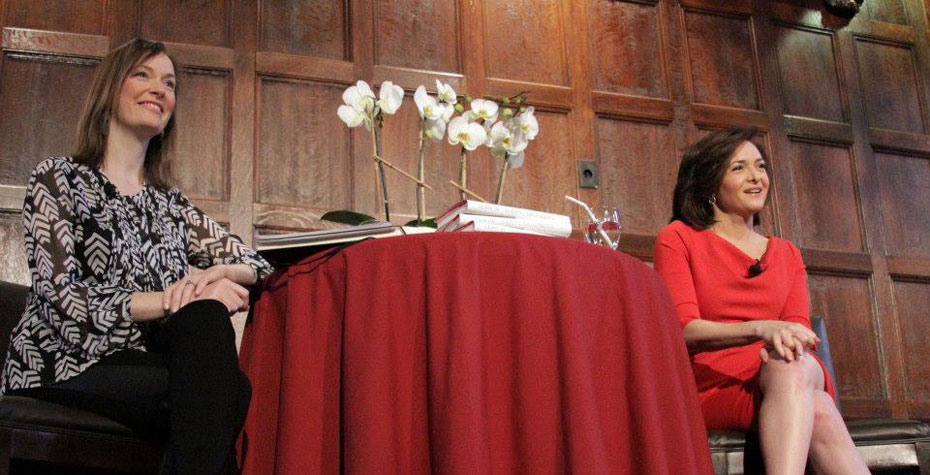C.A. Webb '97 Event Among Many Women's Leadership Conversations with Wellesley Angle after Facebook COO's New Book

C.A. Webb ’97, executive director of the New England Venture Capital Association, coordinated a sold-out women’s leadership event featuring Facebook COO Sheryl Sandberg on April 5.
Sandberg’s book, Lean In: Women, Work, and the Will to Lead, published March 11, is atop the New York Times best-seller list and has sold about 275,000 copies.
Webb and her team were so inspired by Sandberg’s book they worked their networks and fast-tracked the planning and invited Sandberg to what turned out to be a standing-room-only event that sold out in eight hours. Sandberg’s talk and subsequent Q&A with C.A. Webb was also live-streamed online, and is now available to view.
Webb’s hosting of Sandberg isn’t the end of Wellesley’s part of the Lean In conversation. In an April 7 Boston Globe story, three impressive women leaders reflect on the concepts Sandberg pushes—that women must dare to “lean in” toward the center of action and not only try to lead from the periphery. One of the three interviewed was Susan Windham-Bannister ’72.
The CEO of Massachusetts Life Sciences Center told the Globe that as an African American girl heading east from St. Louis in 1968, “she was scared about Boston’s bitter racial divisions of that era and nervous about entering the elite East Coast school. But she took the leap. Now she sees this decision as one of her most pivotal ‘leaning in” moments…. This first leap, and her success at Wellesley, gave her confidence to continue to take chances.” Now an established and successful leader, Windham-Bannister still appreciates how a book like Sandberg’s can give new expression to boost her resolve. She told the Globe: “You lean in, more often than not you can be successful at what you are doing.”
At the start of her talk at Webb's event, Sandberg said, “The blunt truth is, men still run the world. And I’m just not sure that’s going all that well.” She shared metrics about growth in women’s leadership and indicators that progress has stagnated. She spoke of the problems inherent in that, and of the better results that ensue from more balanced roles between men and women in countries, companies, and marriages. “So how are we going to get there? What are we going to do?” she challenged the audience, as she does in her book. Women are held back by institutional and external limitations, of course, she noted, but also by personal and internal ones.
In Lean In, she wrote:
My senior year of college, I was inducted into the Phi Beta Kappa honor society. At that time, Harvard and Radcliffe had separate chapters, so my ceremony was for women only. The keynote speaker, Dr. Peggy McIntosh from the Wellesley Centers for Women, gave a talk called “Feeling Like a Fraud.” She explained that many people, but especially women, feel fraudulent when they are praised for their accomplishments. Instead of feeling worthy of recognition, they feel undeserving and guilty, as if a mistake has been made. … I thought it was the best speech I had ever heard. I was leaning forward in my chair, nodding vigorously. Carrie Weber, my brilliant and totally-not-a-fraud roommate, was doing the same.
Sandberg did not forget that revelation over the years. Her list of remedies to get closer to parity in women’s leadership includes exhortations to both men and women to drop the stereotypes, and to gain understanding of the phenomenon McIntosh describes. In her Boston talk she said, “As managers, as entrepreneurs, as funders, we need to know that women will underestimate their own potential and abilities relative to men, and we need to help them reach for opportunities.”
